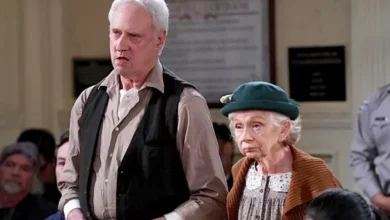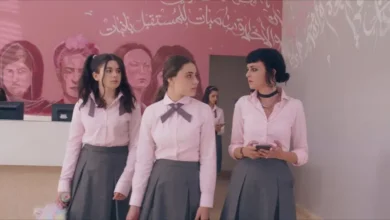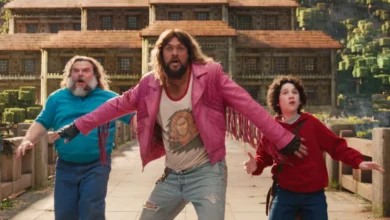Arab and International Filmmakers Tackle Realistic Stories and Stress the Importance of Doha Film Institute’s Qumra in Developing their Careers
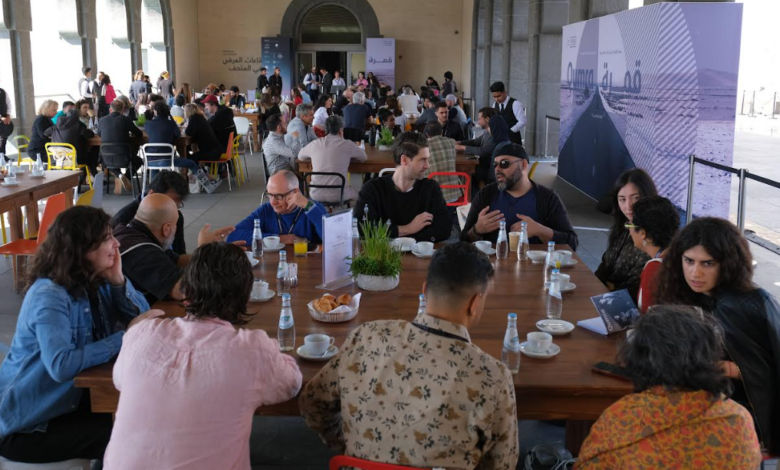
Doha, Qatar, 3 March 2024: Filmmakers participating in the Qumra 2024, the Doha Film Institute’s annual talent incubator event for Arab and international talents, stressed the importance of its role in amplifying new voices in cinema, and praised the support that emerging filmmakers attain throughout the filmmaking process, from scriptwriting to screening.
Now in its tenth edition, Qumra 2024 provides networking and development opportunities for more than 40 projects by emerging filmmakers from over 20 countries, as part of its mission to accelerate their success and prepare them to tell their stories to audiences around the world.
Director Wiame al-Haddad and producer Randa Maroufi said their project La Nuit A Piene (France, Tunisia, Qatar) is an imaginary archive of daily life in Sabra and Shatila camp before the massacre. “No one knows what the life of normal people looked like before the massacre in the camp; there isn’t enough archival or documentary photos, so this film comes to fill this gap to remember life in the refugee camp in a context far from violence.”
She added: ” As filmmakers, we prefer to receive funds and support from Arab institutions such as Doha Film Institute. Our work features serious issues, and political matters, shedding light on taboos. We address Arab issues with our voices and from our perspective. We do not want others to address our issues, nor do we want “artistic colonialism”.
She said it is her first time participating in Qumra and considers it “a unique opportunity to create a space to connect with other filmmakers and receive feedback on our work. Our relationship with the Doha Film Institute wasn’t only about funding, but we also received encouragement and follow-up on our journey in producing this film.”
Director Rita Mahfouz and producer Josef Khallouf of the short film, The Land Was Well Past its Zenith (Lebanon, Qatar), said the project is an experimental essay that presents the fragmentation and the impact on the prospects of Beirut following the blasts of 2020. They said the support of Doha Film Institute has been invaluable, especially at a time when the creative industry and talents need it the most.
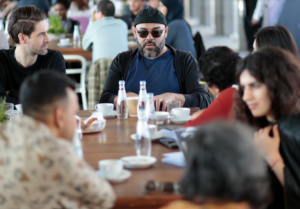
“The feedback we received from the mentors at Qumra has been encouraging, who said there is something very special about this project. It is a very poetic, contemplative, and visual work that intersects with film and fine arts, where it takes inspiration from Byzantine art. Every frame needs composite layering. And when you are as sincere as possible with your approach, as we are, we know the film will connect to audiences.”
Producer Tina Tišljar explained about Bruno Ankovic’s Celebration (Croatia, Qatar), as an adaptation of a Croatian novel that inspired the director. “The events of the film take place in the period between World War I and World War II. It features the character’s journey from childhood until adulthood. We see the circumstances he went through and the decisions he made that led him to end up joining the fascist army. The story of the film shows us the similarities between what happened with the character and what is happening now.”
Tian added: “Our experience with the Doha Film Institute was not limited to funding support, but the experience has been exciting and rewarding. Participating in Qumra is an opportunity to meet filmmakers from around the world and to observe the similarities and differences between Arab and international cinema.”
Hend Bakr, the director of the film, In the Shade of the Royal Palace/Dwellers of the Cabins (Egypt, Qatar), said it is her second work, and revolves around her life when she entered the city world and her interaction with it. She said the cabins in which she lived is threatened with removal. Through her film, she aims to document the place and talk about her relationship with the city. She underlined the importance of the support she received from Doha Film Institute to execute her project. “There’s a big archive I’ll work on that documents people’s connection to the place, and it’s a story from reality that needs to be highlighted.”
Algerian director Yannis Koussim described Qumra as unique, expressing his fascination with the level of organization, the opportunity to meet industry experts, and the passion and interest for cinema in Qatar. He said his feature film Roqia (Algeria, France, Qatar), being mentored at Qumra, revolves around a person who lost his memory after suffering a traffic accident during the Algerian civil war in the nineties.
Commenting on his experience, Koussim said: “For me, Qumra is an ideal experience as it provides me with experiences, ideas, relationships and meetings that I haven’t had for years. I had the opportunity to find a French producer for my next film, and it won’t be the last film, of course.”

